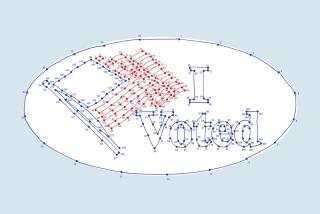Regional Primaries and California
- Share via
The South is serious about this presidential primary business, and that is going to force California Republicans and Democrats to do some deep thinking about their June primary election.
Nine southern and border states have agreed to conduct their 1988 presidential primary elections on the same day, the second Tuesday in March. About one-third of the delegates needed for a party’s presidential nomination will be at stake south of the Mason-Dixon line on the same day. The nine states are Alabama, Florida, Georgia, Kentucky, Missouri, Maryland, Mississippi, Oklahoma and Tennessee. Texas, Louisiana and North Carolina are expected to join in the new super-regional primary.
No one can predict now the impact of the massive primary vote in one day. Some experts believe it will put even more emphasis on the earlier Iowa caucuses and the first-in-the-nation New Hampshire primary, to build precious momentum going into the Super South.
It is certain that any successful nominee will have to make a credible showing the second Tuesday in March. Candidates will arrange their campaigns accordingly. As Sen. Gary Hart (D-Colo.) said, “You have to fit your campaign to the calendar.”
How would this affect California? There is still the chance that the race for the nomination would be deadlocked that late in the game and California could decide the ultimate winner. The prospects for that event fade rapidly, however, as more states cluster their primaries into March and April. The California primary has been virtually irrelevant in recent years as it is.
Now is the appropriate time for California Democratic and Republican leaders to consider moving the presidential primary to an earlier date and possibly consulting with neighboring states about a regional primary of their own. Otherwise, California may find that its presidential primary is strictly secondary.
More to Read
Get the L.A. Times Politics newsletter
Deeply reported insights into legislation, politics and policy from Sacramento, Washington and beyond. In your inbox twice per week.
You may occasionally receive promotional content from the Los Angeles Times.










